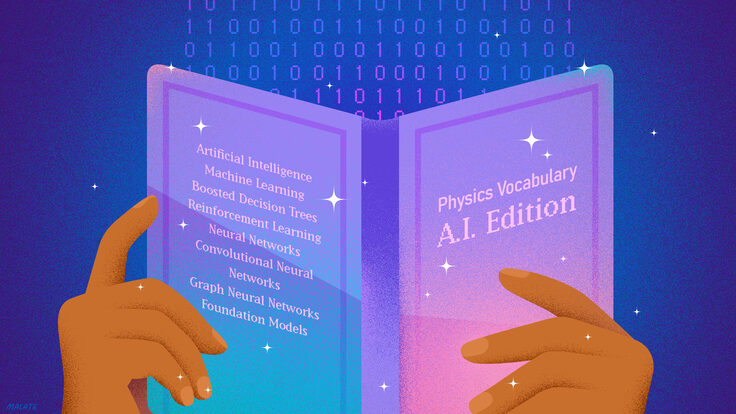 |
| Photos courtesy of ArchiMeDes |
Science Express pulls a carload of particle physics
When designers laid out their vision for an educational train called the Science Express, they almost left particle physics standing on the platform.
Some thought particle physics was not forward-looking enough or close enough to practical applications. But Hannelore Hämmerle, the manager of the exhibition, argued that the mysteries of particle physics excite all ages.
"They are convinced now," Hämmerle says. "They see that people like it."
During the first two months of the train's tour of 62 German cities, more than 10,000 people browsed through 12 cars packed with multimedia presentations, interactive exhibits, and a hands-on laboratory. All cars highlighted research in dynamic fields that will help to shape our world in the coming two decades, including nanotechnology, new industrial materials, mobility, sustainability, and global networks.
The particle physics car, named "The Search for our Origins," is "the one that blocks everyone" as people slow down to take it in, Hämmerle says. "People read all the text. They look at everything in detail."
The exhibit starts with the origins of life and where matter comes from. "You learn that scientists address the question in two ways: They can look to the universe with astrophysics and telescopes, or they can recreate the conditions [of the early universe] on Earth with accelerators and detectors," Hämmerle says.
Visitors also find information on the Higgs boson, the Hubble Space Telescope and ROSITA X-ray astronomy satellite, the cosmic microwave background radiation, string theory, supernova explosions, and loop quantum gravity. A detector phototube from IceCube and part of the ATLAS calorimeter are on display, along with pictures of ATLAS and the other three general-purpose detectors at CERN's Large Hadron Collider.
The Max Planck Society-sponsored exhibit continues through November and likely will tour again, possibly through other countries or at the 2010 World Expo in Shanghai.
A similar science train, also sponsored by Max Planck, was designed to tour India. So far, 2.2 million people have boarded that train to learn about science and absorb some particle physics.
Tona Kunz
Click here to download the pdf version of this article.






